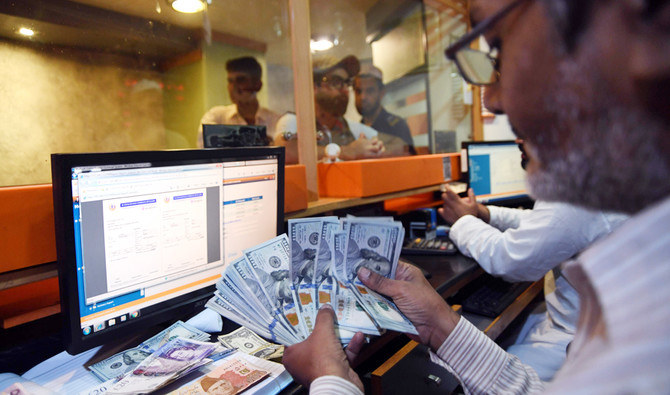KARACHI: Pakistan government's decision to offer yet another tax amnesty scheme for undeclared local and offshore assets has met with skepticism from experts who doubt if this was enough to lure in tax evaders.
Faced with declining tax revenues and mounting international pressure to curb the flow of black money into real estate sector, the government is expected to announce the amnesty scheme next week through a presidential promulgation valid till June 30, 2019.
“Based on reported features and rates, I believe this scheme may not be able to attract undocumented money like the last one did,” Muhammad Sohail, CEO of Topline Securities, told Arab News. He argued that the upcoming initiative had the tax rate of five to 10 percent, which was much higher, while the condition to retain wealth abroad had also been withdrawn under the new scheme.
The last tax amnesty scheme announced by Pakistan Muslim League-Nawaz (PML-N) in 2018 was availed by more than 55,225 people who declared foreign assets worth PKR 577 billion ($4.8 billion) and domestic assets up to worth PKR 1,192 billion. The scheme was able to fetch a total of PKR 97 billion out of which around PKR 36 billion was paid on foreign and PKR 61 billion on domestic assets.
Benami Assets, Undeclared Sales/ Production in Sales Tax / FED, and Undisclosed Expenditure will be covered in the upcoming tax amnesty scheme in contrast to the previous one. Tax rate on the Benami assets would be 10 percent while Foreign Liquid Assets repatriated would be taxed at 5 percent instead of 2 percent, according to Tola Associate’s comparison.
Tax return was not required to be revised and effect of declaration was required to be incorporated in next Tax Year in the previous amnesty. “There was no law stating that the offshore wealth declared could be brought into Pakistan but now the incumbent government has promulgated Benami laws. The condition of becoming a tax return filer will make the declarants liable to give the money trail in future but their past would not be questioned,” Muzzamil Aslam, senior economist, commented.
The incumbent government is much better placed than the outgoing one in terms of availability of data being shared by Organization for Economic Cooperation and Development (OECD) being the signatory.
“During the previous amnesty scheme, there was no complete data shared by the OECD but the current government has all the data of offshore properties,” Asalm added.
Pakistan has a long history of tax amnesty schemes announced since 1958 albeit none successful. However, Dr Farukh Saleem, financial analyst and former government spokesman, believes that the scheme announced in 2018 had certain degree of success after it could raise around 100 billion.
“When all other options of government’s fail, in the wake of low taxes and increasing expenditures, they resort to the amnesty schemes,” he added.
Though no official targets have been announced yet, the experts anticipate the government would set a target of PKR 400 billion tax collection in the upcoming tax amnesty of 2019 and “if they achieve 20-25 percent of this target, I will consider it successful,” commented Dr Saleem.
He added that “the shortfall of tax collection is at PKR 485 billion and their expenditures in the form of interest alone have increased by PKR 500 billion. They have to collect PKR 1 trillion and the tax amnesty scheme would be major focus.”
The country's business community has also voiced concerns over the upcoming tax amnesty scheme. “We are against such schemes because it is tantamount to punishing the regular tax payers but we want to give documentation of economy a chance,” said Syed Mazhar Ali Nasir, former Senior vice President of Federation of Pakistan Chambers of Commerce and Industry.






















